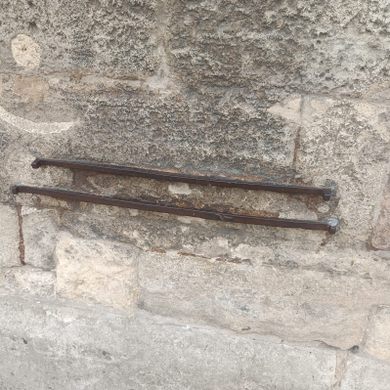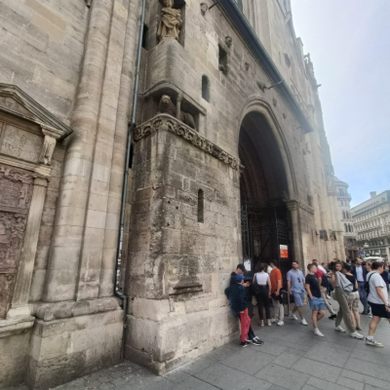Vienna Cloth Measures
These two 15th-century metal rods allowed people to check if they were swindled or not.
In this era of precision measurements, we are so accustomed to knowing the size of things that it’s hard to imagine how things worked back in the past. Fortunately, there are still reminders located all over the world. Two unassuming metal bars left of the entrance to the Vienna Dom are exactly such a thing, a pair of medieval standard measures.
The Vienna cloth measures, also known as the two cells, are a set of standardized length measures installed in the 1450s. They were designed to help people see if the length of cloth they purchased was what the seller claimed.
This was necessary because cloth was often measured in ells, which like the foot is a measure based on human anatomy; namely the length of your lower arm from the elbow until the wrist (it stands for elbow). However, this could lead to abuse, where a cloth merchant could use his daughter’s arm to measure the cloth instead of his own for example. This is why these measures existed.
The top rod is the so-called cloth ell, and is 77.6 centimeters long, while the one below is called the linnen ell is 89.6 centimeters long.
Some tour guides say that the circle above the rods is a medieval measure for bread, but this is not true. It’s damage to the wall from a former barrier.
Know Before You Go
The rods are freely accessible, feel free to see if your arm has the right length to be a cloth merchant.
















Follow us on Twitter to get the latest on the world's hidden wonders.
Like us on Facebook to get the latest on the world's hidden wonders.
Follow us on Twitter Like us on Facebook